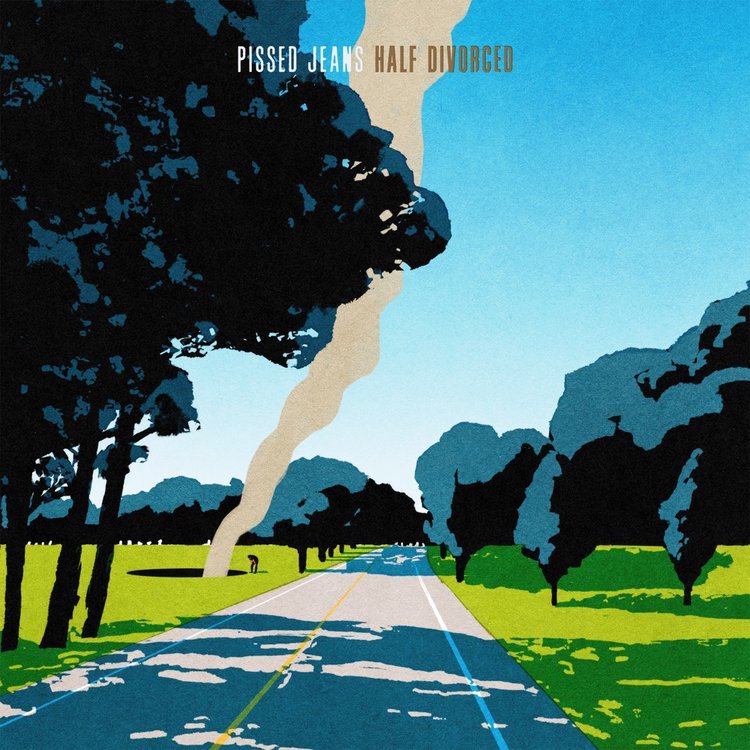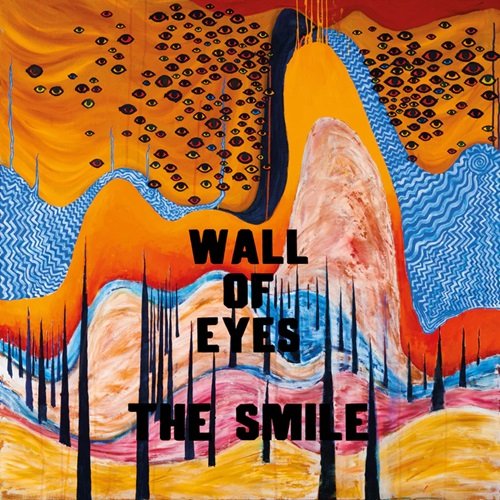7 One-Hit Wonders That Overshadowed Great Albums
Revisiting albums (and careers) overshadowed by massive one hit wonders. These seven albums deserve much more attention and acclaim.
By: Sam Eeckhout
One-hit wonders can be an incredible catalyst for musicians. It can explode their careers. It can take their success to heights they never could’ve imagined.
Look no further than the genuinely vexing success of “Who Let The Dogs Out” by the Baha Men. Formed back in the 70s, their 1998 album Doong Spank sold a paltry 700 copies. Fast forward to 2000, and their smash hit went Platinum and won them a Grammy. How did it happen?
On the other hand, one-hit wonders often misrepresent what a band or musician sounds like. It can set a benchmark that they will forever be measured against. It will be all fans scream for during concerts for the rest of their lives.
Because how we consume music has changed - the frequency and how we define one-hit wonders has changed. As the years have passed, it’s worth taking a second pass at largely forgotten albums.
Tossed aside after listeners heard that one song.
Albums that were overshadowed and robbed of greatness due to one gargantuan hit. Albums that, as time has passed and tastes have changed, might sound different to you now.
We picked seven from the past 55 years to review. Let’s go.
Warren Zevon - Excitable Boy
The Hit: “Werewolves of London”
Released: January 18th, 1978
Charts: Peaked at #8
Weeks in top 10: 4
Look, Warren Zevon is no slouch.
He was one of rock n’ roll’s most talented musicians, but he always sat slightly out of the central circle of fame. Despite a lengthly discography as full and complete as any solo artists from the 70s, he never quite reached the upper echelon in which he belonged. His two Grammy wins came after he lost his battle with cancer.
“Werewolves of London” is a beast of a tune with an instant hit sound, which oddly ended up being Warren Zevon’s only Top 40 hit in his career. Following up the even more impressive self-titled record from two years earlier, Excitable Boy is scattered with sharp commentary on the world, wars, and perception. Staying true to his trademark cynicism, Excitable Boy is filled with memorable lyrics and guitar riffs - and his battle with alcohol and addiction seeped its way into his introspective sound,
From the opening singalong of “Johnny Strikes up the Band” to the tender “Veracruz,” the album is just as varied as it is complete. With creative storytelling in songs like “Roland the Headless Thompson Gunner” and “Excitable Boy,” (live version) which slowly takes a very dark path, Excitable Boy (and Zevon’s full discography) deserves a longer, deeper look from fans of late 70s rock and beyond.
The Cardigans - First Band On The Moon
The Hit: “Lovefool”
Released: August 12th, 1996
Charts: Peaked at #35
Weeks in top 25: 0
"Lovefool" lathered the airways in 1997, sitting in the radio top 10 in the UK, Canada, and the US (#11 in Australia). Off the Swedish dream-pop/rock band's third album, First Band On Earth - their hit, "Lovefool," was used in a Baz Luhrmann film and exploded, leaving behind their unique blend of depressing, off-kilter pop tunes.
First Band On The Moon (which went Platinum in just three weeks) floats. It floats along infusing a smattering of ideas that no doubt come from guitarist Peter Svensson and bassist Magnus Sveningsson's Metal roots.
From the perfect 'love' song in "Heartbreaker" (morphing out of a slower metal homage) to an ode to Black Sabbath on "Iron Man," it's an eclectic mix across a polished 39 minutes. You can hear the moody, harder rock riffs on tracks like "Been It," - which, had some distortion been cranked up, could easily have been a metal tune itself.
"Lovefool" sits unassumingly on track seven and continues the deceptively light-hearted 90s pop sound - while the lyrics underneath are full of tumult. Vocalist Nina Persson walks the line of victim/aggressor masterfully in this quirky album worth every second of your time.
The Zombies - Odessey and Oracle
The Hit: “Time Of The Season”
Released: April 19th,1968
Charts: Peaked at #95 (the Re-release)
Weeks in top 25: 0
When Odessey and Oracle was ready for release, the feeling was so indifferent that The Zombies label didn't want to release it. After some persuading, CBS's US division released Odessey and Oracle on their minor sub-label Date Records. Things were so all over the place that they misspelled Odyssey on the album cover in the now infamous error.
Before Odessey and Oracle even came out, after an extraordinarily fraught recording process that saw the band fighting constantly - the band quietly broke up.
It's worth repeating. The Zombies broke up before their smash single off their excellent album was released. This means the band never played their massive hit "Time Of The Season" on stage for an audience. Slowly but surely, the song gained more and more acclaim and attention - and by the 90's, it had reached its own small cult following, and the band reunited to tour.
The album itself is criminally overlooked, and perhaps that's a sign of how competitive the musical landscape was in 1968. But with the wonderful "Care of Cell 44" and the delicate "Brief Candles," The Zombies and their misspelled album deserve a place in your rotation here in 2024.
Have a look at The Zombies playing the track in 2013 live on KEXP right here. It's better than you could ever imagine.
Harvey Danger - Where Have All the Merrymakers Gone?
The Hit: “Flagpole Sitta”
Released: July 29th, 1997
Charts: Peaked at #70
Weeks in top 25: 0
Taking a different path than others on our list - “Flagpole Sitta” was the debut single off the debut album Where Have All The Merrymakers Gone? from Harvey Danger.
Talk about a good start.
And while the infectious 90s alternative rock anthem went from college campus radio to an International hit, the album (completed on a budget of $3,000) it came from couldn’t keep up.
Despite becoming certified gold two years later, the band became impatient and uncomfortable with being associated with the sound of one song and sought to change directions in subsequent albums.
Those albums (especially King James Version) are undoubtedly worth their own discussion and discovery, but Where Have All The Merrymakers Gone? is fiery, punchy, rough, and raw, combining the sound of Pavement with a pissed-off Weezer. It encapsulates the disjointed sounds of the decade with a clever thread of ideas.
“I’m not sick but I’m not well
And I’m so hot ‘cause I’m in Hell”
Gary Numan - The Pleasure Principle
The Hit: “Cars”
Released: September 7th, 1979
Charts: Peaked at #16 (#1 in the UK)
Weeks in top 25: 5
Gary Numan has had incredible success outside of “Cars,” including staying power across multiple decades.
While The Pleasure Principle was Numan’s debut solo album, his subsequent albums also had legitimate commercial success, with several singles resonating with fans. He made his own label. His songs have been covered by artists like the NIN and Dave Grohl, and he continues to tour to this day.
However.
That said.
“Cars” is still a one-hit wonder that overshadowed the greatness of The Pleasure Principle.
The synth-heavy, futuristic, melody-laden album ushered in the new-wave movement of the 80s and is a dense helping of robotic sounds and bass. It was way ahead of its time and still sounds as fresh and crisp as the day it came out.
It is a surreal experience, with brilliant lyrics on technology, and it stays engaging throughout. It’s time to dive back into the specific and humanoid world of The Pleasure Principle.
Norman Greenbaum - Spirit In The Sky
The Hit: “Spirit In The Sky”
Released: December 30th, 1969
Charts: Peaked at #23
Weeks in top 25: 1
Norman Greenbaum knew "Spirit In The Sky" would be a hit song. "It just sounded too good," he said.
While the instrumentation bounced around in his head for a long time, the lyrics, infamously, were written in 15 minutes. That is not bad, considering the song's longevity and how the lyrics still have such vivid imagery.
Things fizzled out - Greenbaum couldn't ever live up to his smash hit and slowly stopped trying to live up to it. He traveled and cooked, and eventually, the song was used in so many movies and covers that he could live comfortably.
But the rest of the album has an authentic charm. "Skyline" is an uppity tune with great guitar hooks, and "Marcy" has soaring synth work behind his unique vocal blend of folk and rock. He is an exceptional songwriter, and despite the rest of the record never finding a place on the charts or airwaves, it's a blast to listen to with the car windows down, acting as a carefree sound capsule of the 60s.
Blind Melon - Blind Melon
The Hit: “No Rain”
Released: September 22, 1992
Charts: Peaked at #3
Weeks in top 50: 27
Blind Melon hopped into the 90s Grunge Wave from the momentum of a completely different era. Matching up against the Nirvana and Pearl Jams of the early 90s, Blind Melon was entirely influenced by 70s southern rock n’ roll, wailing solos, soaring vocals, and a good time.
Their unexpected second single off the album, “No Rain”, catapulted to #1 and shoved them into the limelight, becoming a band with a debut multi-platinum record. It is the case of a one-hit wonder misrepresenting what the band really sounds like.
”No Rain” was packaged for audiences as a hippie-revival-jingle-jangle, but if you throw on their self-titled debut, you’ll find southern blues rock roots and incredible instrumentation. From the extended outro of the opening “Soak the Sin” to the moving “Change,” Blind Melon is one of the more impressive rock debuts of the 90s.
They toured the album, opening for the Rolling Stones and rocking Woodstock 94 before lead singer Shannon Hoon lost his life to an overdose shortly after their sophomore album, Soup, (equally impressive) was released. If you zoom out from No Rain” and enjoy the complete discography of Blind Melon, you will see them in a completely different light.


















